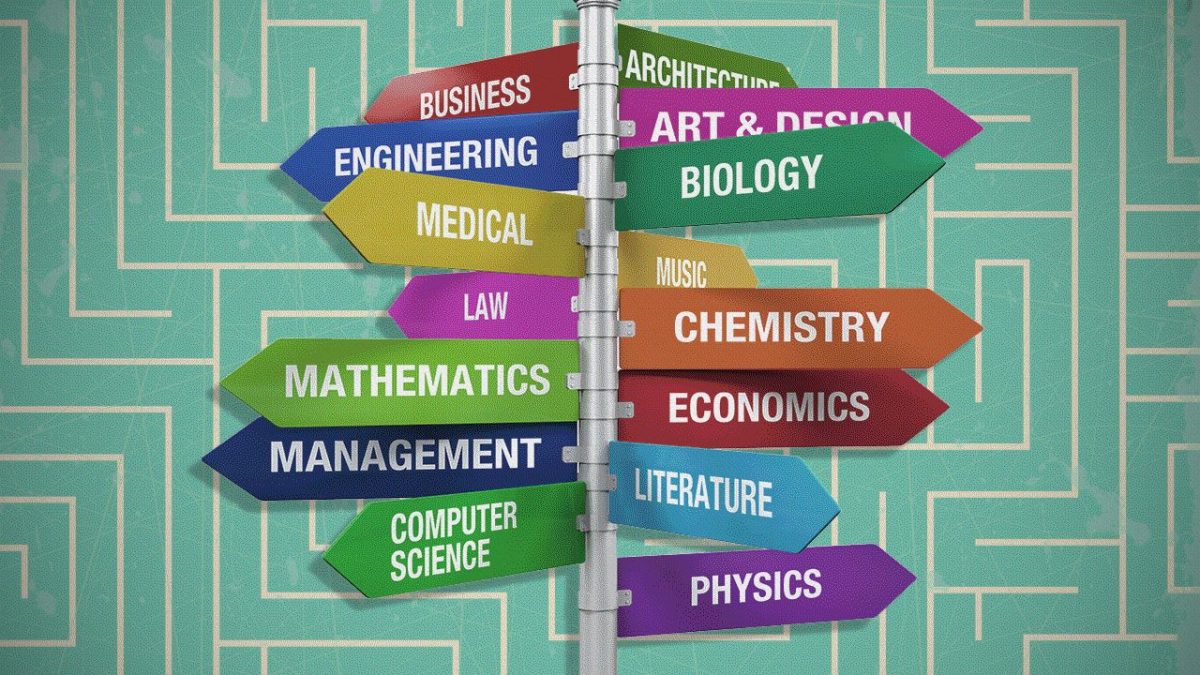With college application acceptances rolling in, now is a more urgent time than ever to decide your major. Choosing a college major is one of the most important decisions in your academic journey. It not only shapes the next few years of your college life, but also has a great impact on your career prospects, and in shaping who you are. With hundreds of options available, selecting the right major can seem greatly overwhelming. However, understanding the different types of majors, their potential career outcomes, and how to align them with your interests and skills can help you make the best possible choice.
Stem Majors
Examples: Computer Science, Biology, Engineering, Mathematics, etc
STEM fields are often seen as high demanding areas with lucrative job prospects. Students in these majors would have efficient problem-solving skills and technical expertise. These areas are known for their strong job markets as technology and innovation continue to drive economies. However, they can also be very challenging, requiring strong analytical and quantitative skills.
Humanity Majors
Examples: English, History, Philosophy, Languages, etc.
Humanities majors focus on human culture, thought, and creativity. These fields encourage critical thinking, writing, and communication skills, which are valuable in a variety of professions, including education, law, journalism, and the arts. While they may not always lead directly to specific job roles, humanities majors offer broad career flexibility and the opportunity for personal growth.
Social Sciences Majors
Examples: Psychology, Sociology, Political Science, Economics, etc
These fields study human behavior, societal, and economic systems. Social science graduates often pursue careers in research, public policy, social work, healthcare, or business. A social science degree emphasizes analytical thinking and the ability to understand complex systems.
Business Majors
Examples: Business Administration, Marketing, Finance, Management
Business degrees are some of the most popular choices for students. These majors are designed to develop practical skills in leadership, strategic planning, and financial analysis. Graduates with business degrees often find work in corporate settings, entrepreneurship, consulting, or nonprofit organizations. Business majors tend to offer high earning potential and job stability.
Creative Arts Majors
Examples: Visual Arts, Music, Theater, Graphic Design
Majors in the creative arts focus on fostering creativity, innovation, and artistic expression. While these fields are often less focused on a traditional career path, they offer opportunities in industries such as entertainment, design, media, and advertising. Graduates in these fields typically pursue freelance work, artistic careers, or roles in creative industries.
HOW TO CHOOSE THE RIGHT MAJOR
Choosing a college major requires careful thought and consideration. Here are some factors to think about when making your decision:
Interests and Passions
Think about what subjects you enjoy most and what you feel passionate about. If you’re excited about solving complex mathematical problems, Engineering or Computer Science might be a good fit. If you have a strong love for literature or history, then a Humanities major may suit you better. Studying something that you are passionate about will make your academic experience more enjoyable and motivating.
Skills and Strengths
Consider your strengths and areas where you excel. If you’re good at working with numbers and abstract concepts, a major in Finance, Mathematics, or Science may be ideal. If you have strong communication and interpersonal skills, majors like Psychology, Journalism, or Business could align well with your talents.
Career Goals
Think about your long-term career aspirations. Some majors, like Nursing, Engineering, or Accounting, have more defined and structured career paths. Others, like English or Philosophy, might require additional graduate studies or offer more flexibility but can still lead to fulfilling and successful careers in fields such as law, education, or writing.
Job Market and Opportunities
Research the demand for professionals in the field you’re considering. Some industries, such as healthcare, technology, and engineering, are expected to grow significantly, while others may face challenges due to automation or shifting societal needs. While job stability and earning potential are important, it’s also essential to find a field that offers opportunities for growth and personal fulfillment.
Interdisciplinary Options
Many colleges offer the option to double major or pursue interdisciplinary studies, allowing students to combine two areas of interest. If you can’t decide between multiple fields, this approach allows for flexibility. For example, you might pair a major in Environmental Science with a minor in Political Science to work in environmental policy, or combine Business with Computer Science to enter the tech industry.
Choosing the right college major is a personal decision that reflects your interests, skills, and career aspirations. Take the time to explore different fields, research potential career outcomes, and talk to professionals in areas in which you’re interested. Keep in mind that your major is just the beginning of your journey, and you’ll likely continue learning and growing throughout your life. Whatever path you choose, remember that success is about passion, perseverance, and adaptability, not just about the degree you hold.

















































































































































































